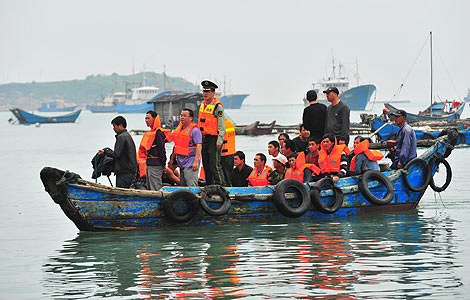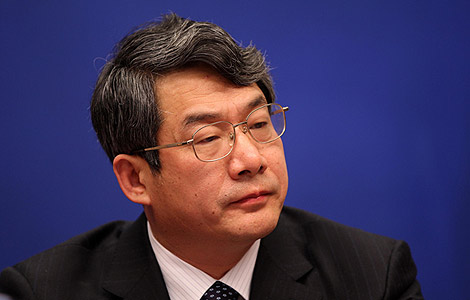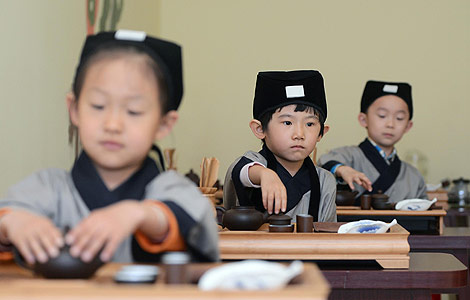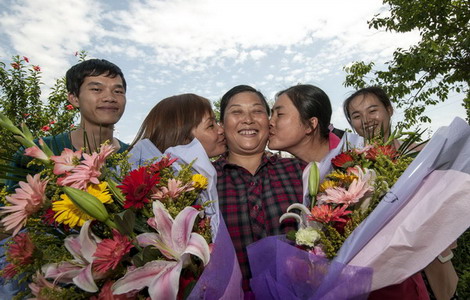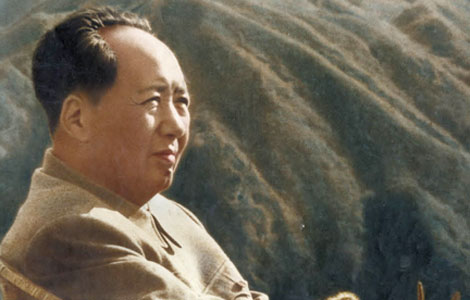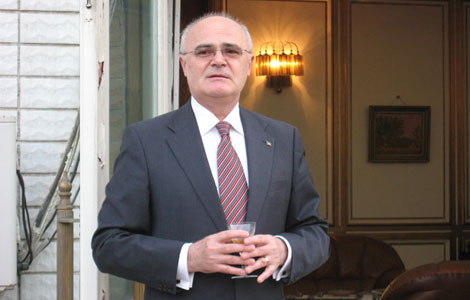
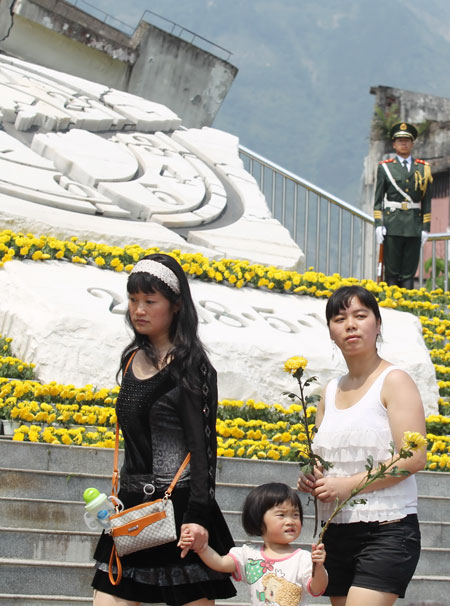 |
|
Yang Zhenrong, 42, (left), mourns her 12-year-old son, who was killed in the massive earthquake five years ago, with her 2-year-old daughter, at what remains of Xuankou High School in Yingxiu township, Wenchuan county, in Sichuan province, on Sunday. Zhu Xingxin / China Daily |
A student with the highest score in his grade in his senior high school, Jiang rejected the national college entrance examination to fulfil his dream of passing the entrance examination to a military academy.
"My son was very close to me. Whenever he took a walk with me in the street, he would hold my hand. When he took a bus, he would give up his seat to the old, weak, sick and pregnant. When there was a child on the bus, he would hold him as if he were his own brother," said a tearful Leng, who was comforted by Chen Huaqin, a jobless resident of Luzhou which has Luxian under its administration.
Chen's only son, Zhu Qiang, was 19 when he perished with Teng and Jiang. Chen's husband Zhu Zhaobin died of liver cancer two weeks before her son joined the army in late 2006.
"When the military truck took away my son and other new recruits, my son and I cried. To try to stop me seeing it, he covered his eyes with his cap. It was the last time I saw him," Chen said, tears brimming in her eyes.
During Spring Festival in 2007, Chen planned to visit his son in Yingxiu but gave up the idea because the lad said the road to Yingxiu was mountainous and dangerous and he would be demobilized in late 2008.
As a soldier, Zhu Qiang had a monthly stipend of about 200 yuan ($32). But he would send most of it to his mother every three months.
"On May 11, 2008, my son called me, saying 'Happy Mother's Day.' It was the last time we talked," said Chen, trying to contain her tears.
Thinking of her son, Chen cries every Mother's Day.
"I am afraid I will be blind and nobody will take care of me because I am alone. But it is impossible not to cry in such a place (like the cemetery) on Mothers' Day," Chen said.
The sadness has never left Yingxiu despite the five years since the tragedy.
The smell of incense and the noise of firecrackers filled the cemetery on May 12, ignited by earthquake survivors in a place where 6,000 of the quake's victims are buried, accounting for about half the population of the town at the time.
Twenty Shibi, or masters of religious ceremonies who are the most knowledgeable people regarding traditional Qiang culture, performed a traditional sheepskin drum dance to commemorate the quake victims on Sunday morning.
